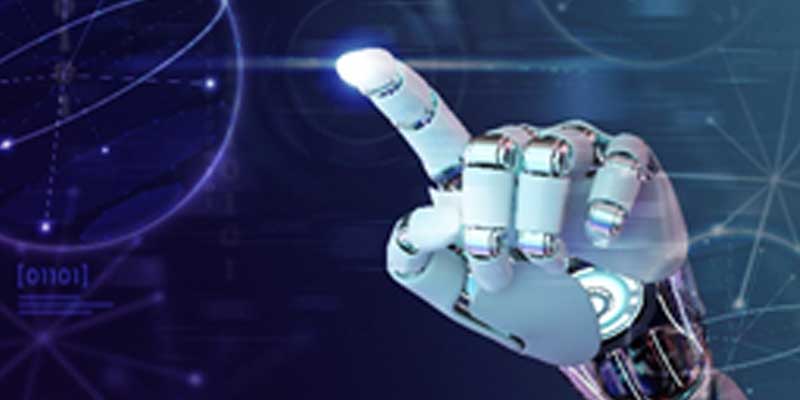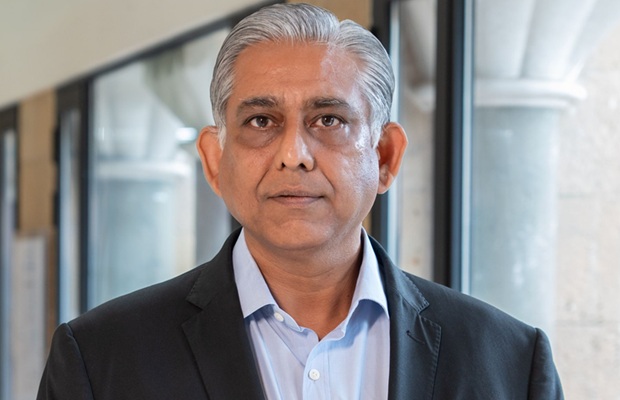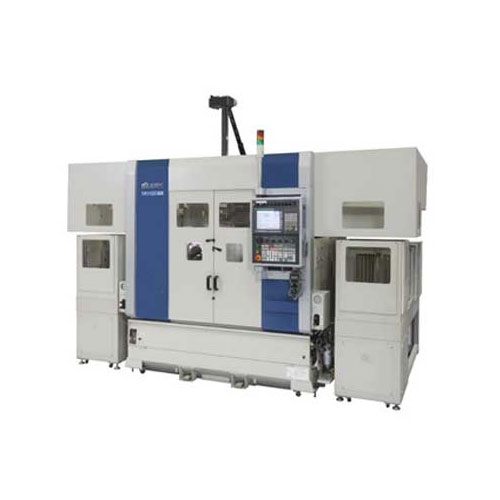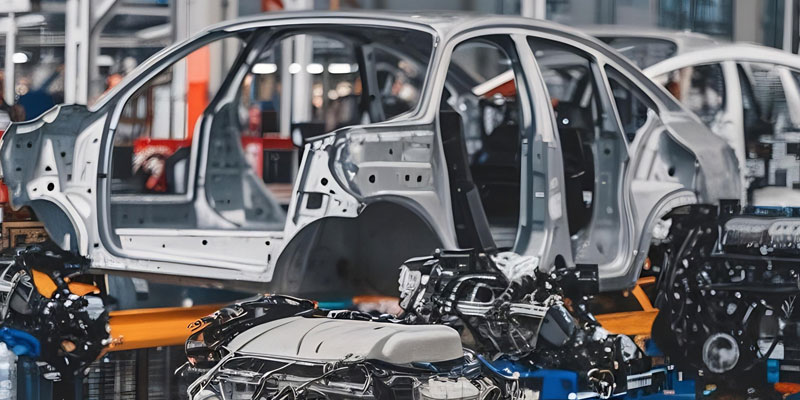Schedule a Call Back
AI driven industrial automation
 Articles
Articles- Jul 28,23

Recent times have seen a deluge of technological advances, of which the one that has created the biggest impact ever experienced till date has been in the form of Artificial Intelligence (AI). The concept of AI is not at all new, however the way it been transforming the way of life at breakneck speed, has been far profound in a span of a very short time. AI capabilities have been knocking at the doors with limitless spectrum where it can bring changes that were unimaginable a few years ago.
AI machine can learn, think, analyse, strategise and make decisions very quickly, including reasoning, discovering patterns and meaning, generalizing knowledge across spheres of application, and learning from experience.
Industrial automation (IA) is not left untouched in this deluge of artificial intelligence. The convergence of IA and AI has brought forth a new era of transformative possibilities for all industries worldwide. After Industry 4.0 and IIoT, and along with it, AI has started a revolution in the way industries approach automation. As AI technologies continue to advance, the focus of industrial automation has shifted towards enhancing efficiency, safety, and innovation, making operations smarter, more productive, and sustainable.
Enhancing efficiency through AI-powered automation
AI-driven automation has significantly improved the efficiency of industrial processes by optimising resource allocation, reducing downtime, and streamlining complex tasks. Machine learning (ML) algorithms enable systems to analyse data patterns and make data-driven decisions, leading to enhanced production processes and reduced waste.
One of the essential components of AI-driven efficiency is predictive maintenance. By analysing sensor data and historical performance, AI algorithms can predict equipment failures before they occur, allowing for timely maintenance and avoiding costly unplanned downtime.
Additionally, AI has enabled industries to implement dynamic production scheduling. Smart manufacturing systems can adapt to changes in real-time, optimising production sequences based on demand fluctuations, material availability, and other variables.
Ensuring safety with AI-powered automation
Safety is a top priority in industrial settings, and AI has proven to be a game-changer in this aspect. AI-powered robots, drones and machines are capable of working alongside human workers in collaborative environments, reducing the risk of accidents and injuries.
Machine learning algorithms can analyse data from different sources, ensuring that equipment operates within safe parameters. AI-powered vision systems can detect potential safety hazards and alert operators to take necessary precautions. AI-driven automation plays a crucial role in hazardous environments through remote operations. It enables the control and monitoring of critical processes from a safe distance, reducing exposure to harmful conditions for workers. In industries such as semiconductor, pharma and chemical labs, AI can offer near-perfect operating solutions for working in clean room environment where avoiding contamination is indispensable.
Promoting innovation and productivity
AI-driven automation has created a fertile ground for innovation, leading to the development of novel solutions and products. By automating repetitive and mundane tasks, AI frees up human resources to focus on more creative and strategic aspects of their work. It fosters the emergence of entirely new business models. Companies can utilise AI to analyse market trends, predict customer preferences, and identify potential growth opportunities. This data-driven approach facilitates faster decision-making and enhances competitiveness.
In research and development, AI-powered simulation tools have revolutionised the way new products are designed and tested. Virtual prototypes can be developed, analysed, and optimized before physical production, reducing costs and time-to-market.
Addressing sustainability and environmental concerns
With increasing environmental awareness, industries are under pressure to adopt sustainable practices. AI-powered automation contributes to sustainability efforts by optimising resource utilisation, reducing energy consumption, and minimising waste.
AI-driven systems can monitor energy usage patterns and suggest energy-saving strategies. For instance, they can automatically adjust lighting, heating, and cooling in factories to align with occupancy levels and production schedules.
Furthermore, AI plays a significant role in supply chain optimisation. By analysing data from suppliers, transportation, and distribution, AI-powered systems can identify areas where efficiency can be improved, thereby reducing carbon footprints.
The focus of industrial automation has shifted significantly with the integration of AI technologies. Efficiency, safety, innovation, and sustainability have become the cornerstones of AI-driven automation in industries worldwide. As AI continues to evolve, its potential to transform industrial processes and create smarter, more sustainable systems will only grow, paving the way for a more advanced and interconnected future.
While the stage is set for an exponential growth in the days to come, there is an urgent need to responsibly address the ethical and privacy concerns, ensuring that the benefits of AI-powered industrial automation are harnessed for the greater good of humanity.
Article courtesy: VBR Technologies Pvt Ltd, Bengaluru
Related Stories

Engineering India’s Next Phase of Growth with Responsibility: Amit Sharma
Amit Sharma, MD and CEO, Tata Consulting Engineers (TCE), outlines TCE's strategy to support India’s next phase of industrial growth through integrated engineering, nuclear and digital capabilitie..
Read more
HANNOVER MESSE to Host Industry Leaders on Future Tech 2025
At HANNOVER MESSE, global leaders from Siemens, Rheinmetall, Accenture and others will share insights on AI, automation, security and industrial transformation shaping the future of industry. update..
Read more
Tata Chemicals Arm to Acquire Novabay Premium Bicarbonate AP
Tata Chemicals’ unit TCIPL will acquire Novabay, a premium sodium bicarbonate maker in Asia-Pacific, strengthening TCL’s specialty portfolio and capacity to serve pharmaceutical and food custome..
Read moreRelated Products

Compact Fmc - Motorum 3048tg With Fs2512
Meiban Engineering Technologies Pvt Ltd offers a wide range of Compact FMC - Motorum 3048TG with FS2512.

Digital Colony Counter
Rising Sun Enterprises supplies digital colony counter.
Robotic Welding SPM
Primo Automation Systems Pvt. Ltd. manufactures, supplies and exports robotic welding SPM.














